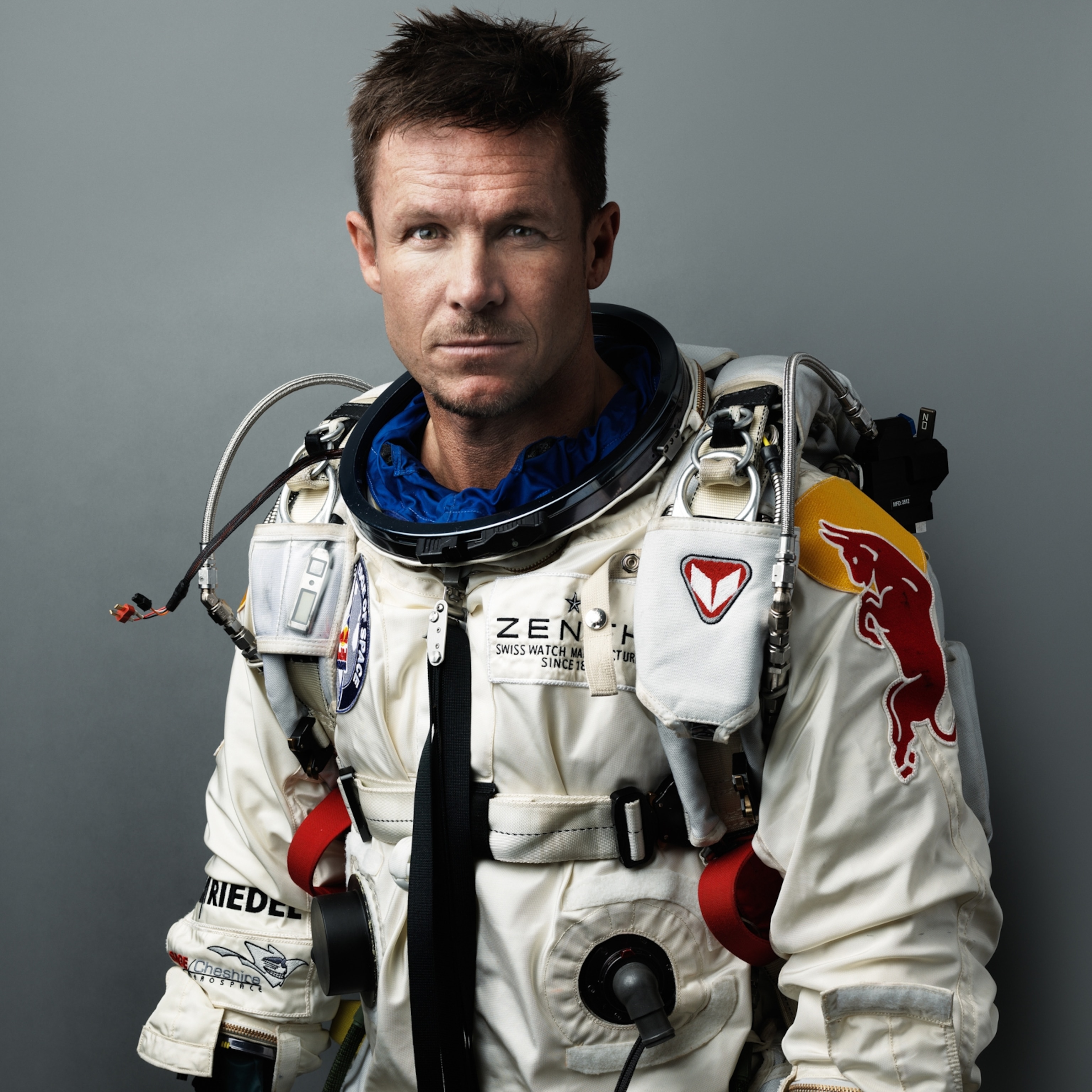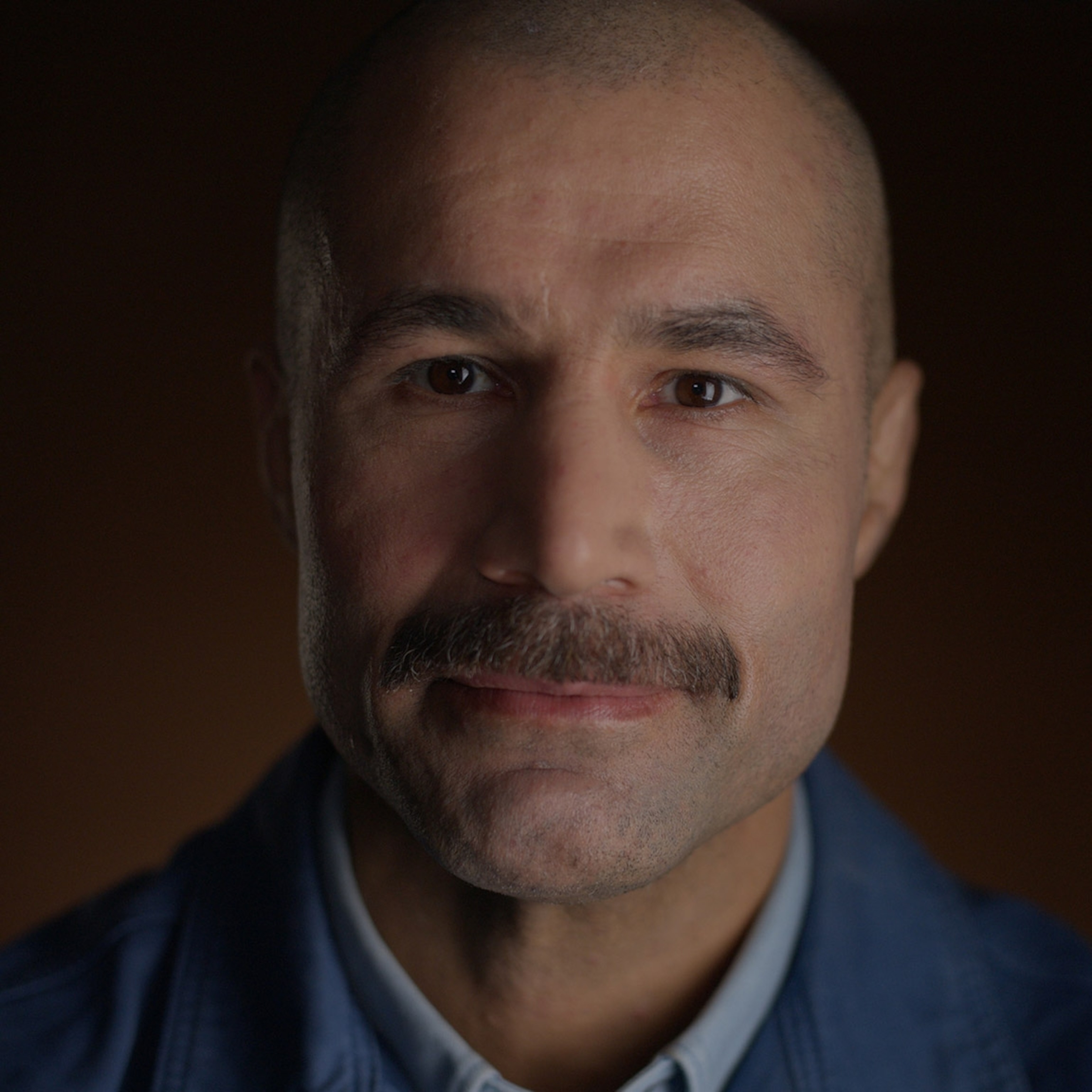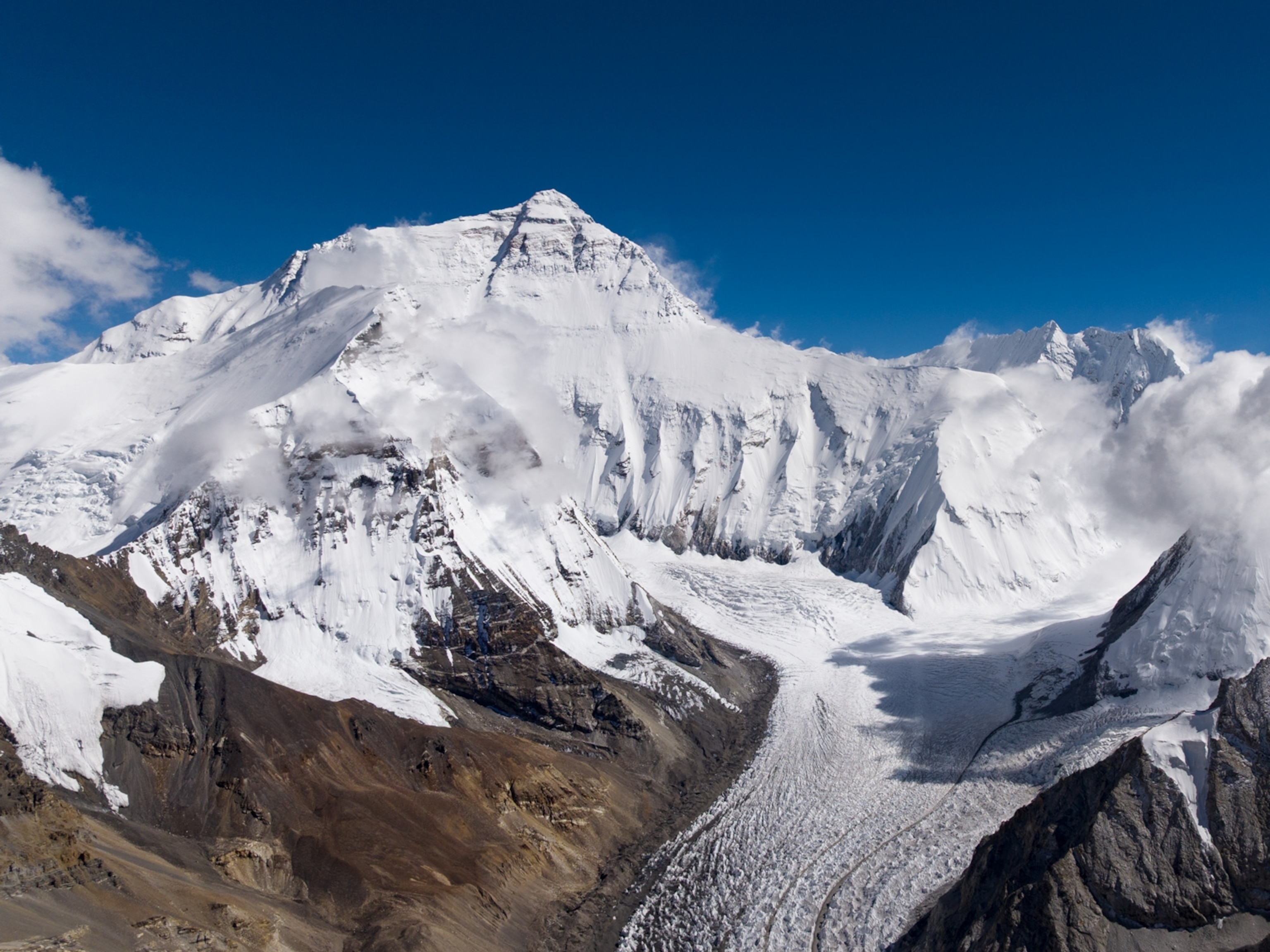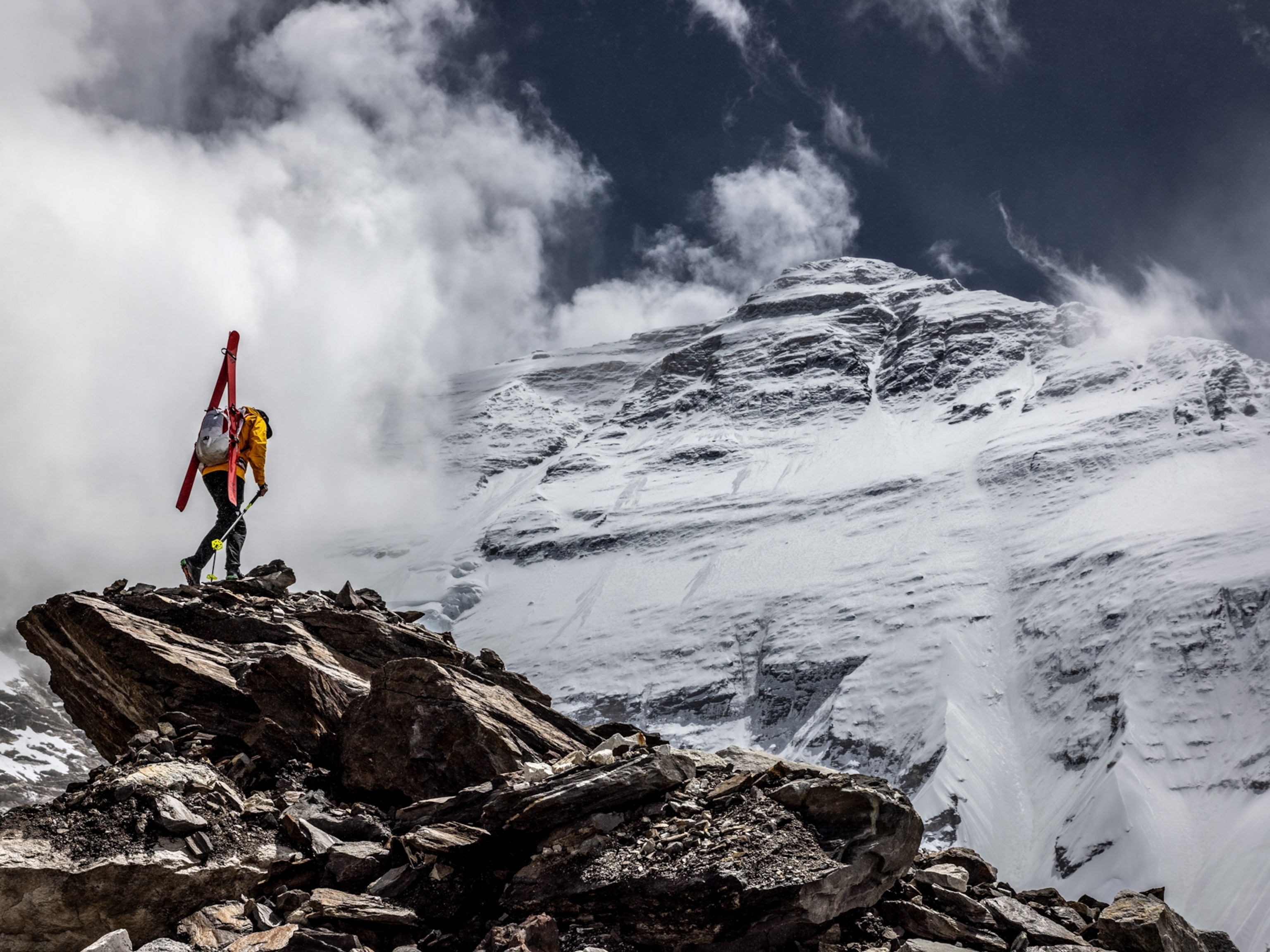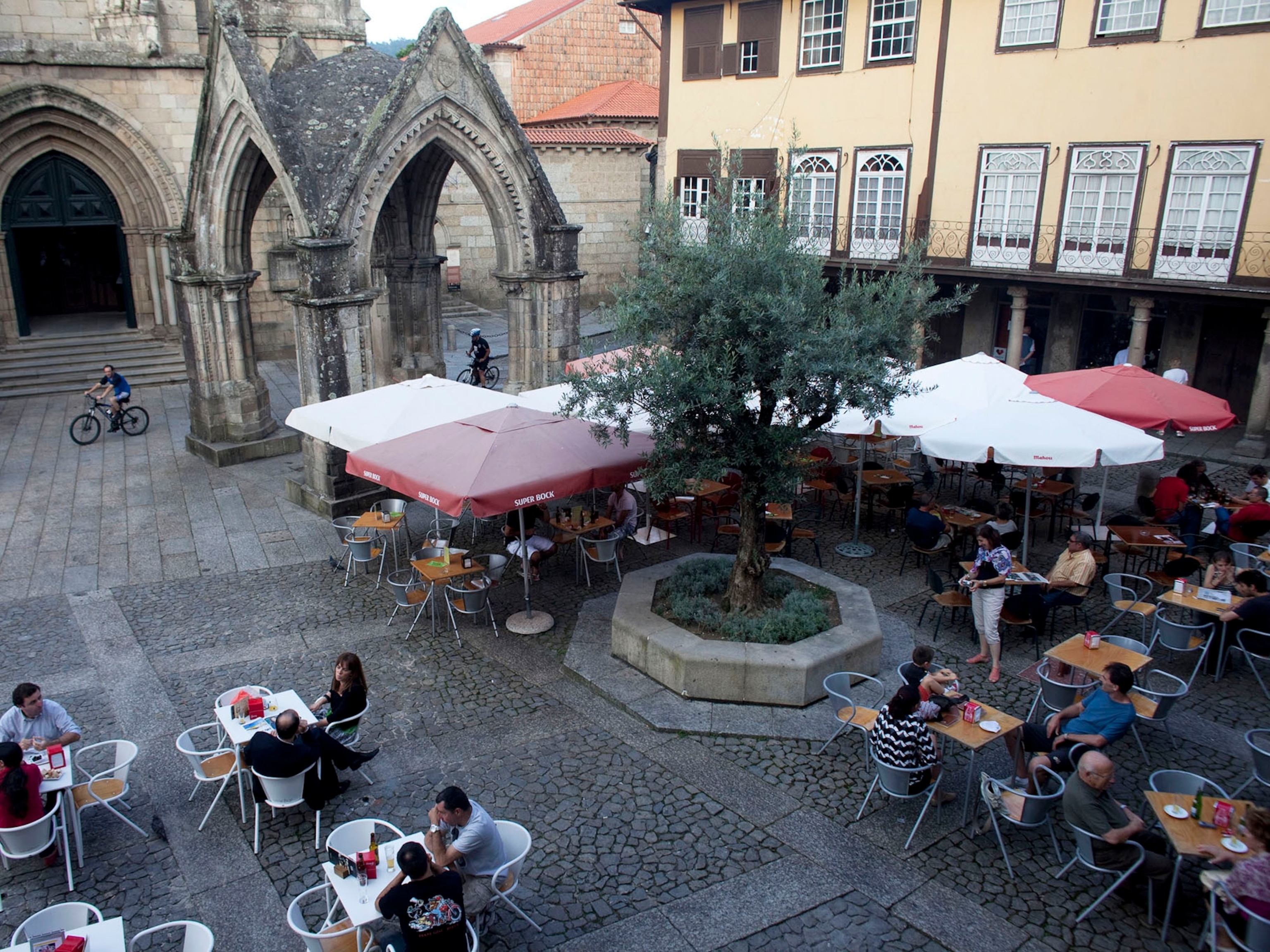Adventurers of the Year 2007
Adventurer of the Year: Andrew Skurka
There's an engine somewhere inside Andrew Skurka, a quiet, relentless drive that never quits—and there would have to be. On the day I caught up with him, Skurka, 26, was about two-thirds into a 6,875-mile (11,064-kilometer) hike, an epic, first-of-its-kind journey that in one fell swoop passed through five major mountain ranges, 12 National Parks, and 75 Wilderness Areas. He calls it the Great Western Loop.
Skurka set out from the Grand Canyon on April 9, 2007, and quickly hit an average pace of around 35 miles (56 kilometers) a day. Over the next two weeks or so, he walked 675 miles (1,086 kilometers) west across the Sonoran and Mojave Deserts. Near Palm Springs he turned right onto the Pacific Crest Trail and walked north 2,415 miles (3,887 kilometers), blitzing through the early spring snowpack of the Sierra and past the looming volcanoes of the Cascade Range.
Close to the Canadian border, he turned east onto the Pacific Northwest Trail and followed that for 675 miles (1,086 kilometers) until he hit the Continental Divide Trail in northern Montana. By the time I went looking for him in mid-September, he was in the middle of that leg: a 2,400-mile (3,862-kilometer) shot south along the spine of the Rockies, back toward the Grand Canyon.
To make sense of this, you have to reread the figures I've just cited and resist the impulse to scan them like so many quantifiers of high achievement. You have to remember that you're reading about one of the longest journeys ever undertaken on foot. You also have to ignore the tidy name of his route—as if it were some mega-version of the PCT—and you have to accept that, yes, of course Skurka has sponsorship from outdoor gear companies and a website declaring admirably that his trip "underscores the magnificence of America's West, its long-distance trail system, and its National Parks, while also highlighting the environmental and ecological threats that are adversely affecting them." This is good stuff, and Skurka really means it, but nobody walks 6,875 miles (11,064 kilometers) alone to "highlight" or "underscore." They do it because they need to, because they want to, because it feels right.
That much was obvious from the moment I first saw Skurka. It was 9 a.m. on a Saturday morning at a picnic table outside the village of Twin Lakes, Colorado, just over Independence Pass from Aspen and at the base of the state's highest peak, 14,433-foot (4,399-meter) Mount Elbert. He had rolled into town to pick up a package of food and clean clothes that his mother had mailed to him at the Twin Lakes General Store and Post Office, and to send his own dirty clothes back to her for washing. He also wanted to wolf down some serious calories. As he tucked into a massive plate of eggs, bacon, and potatoes at the Twin Lakes Nordic Lodge, he looked like any other clean-cut young man: short dark hair, a black sun visor, a square jaw, and the most insanely fit-looking legs you've ever seen.
He's not a weirdo, in case you're wondering. In fact, you couldn't meet a more all-American guy than Andrew Skurka; Tom Cruise would be a fine choice to play him in a biopic (at least in his non-manic, non-jumping-on-Oprah's-couch moments). He comes from a normal family in a normal suburb of Providence, Rhode Island; he was an all-state high school runner with a 4:21 mile; he worked summer internships at Paine Webber and the Greater Providence Chamber of Commerce; he ran Division I track at Duke; and he now carries degrees in political science and economics—just the ticket for his intended career as an investment banker. But then, rather abruptly, everything changed, and nowadays Skurka is putting in a very different kind of hard work. When he'd finished a second plate of eggs and hoisted on his backpack to start walking again, I did my best to learn why.
I also struggled to keep up; hiking with Skurka is like tagging along on one of Lance Armstrong's workout rides, except at high altitude. He was going easy on me, of course, restraining his gait in the name of conversation and plain decency, but he still hoofed it out of Twin Lakes like a man hungry to get hammering again. His stride had an aggressive, forceful acceleration, as if he couldn't quite rein in the team of horses that lives in his chest. We tore across fields and aimed uphill through a forest. Between my deep, gasping breaths, I got him to admit that, more or less, it all started with 9/11. The ensuing collapse of the financial services sector meant fewer summer internships for go-getter college kids like Skurka. To occupy his time, he had to veer off the straight and narrow. Before his junior year at Duke, he took a gig as a counselor at a North Carolina outdoors camp. Before his senior year, he walked the 2,175-mile (3,500-kilometer) Appalachian Trail alone—in 95 days.
"I remember going through this super- rugged section of the trail in Maine," Skurka told me, as he hopped from rock to rock across a creek while I splashed along behind him, wetting my socks. "I got poured on the entire day and I didn't see a thing. I was up in the clouds and I remember all this wind and rain and I was like, Yeah! I'm doing it, man! I'm doing it! So I wondered, Are we working to live or living to work? And I thought, Neither. I'm just living! I'm not working at all!" From there, apparently, it was all downhill, at least in terms of investment banking: Skurka took a leave of absence from his senior year at Duke to intern at the Nature Conservancy. He followed that with a summer job in Boulder where he seized on the idea of hiking from the Atlantic coast of Quebec to the Pacific coast of Washington. It just hit him one day, a thunderbolt that said, Hey, I know what I want to do! I want to hike across North America! Sweet!
"I had to tell my parents very slowly," Skurka said. "They were completely unconvinced it was the best thing to do with the opportunities given to me by going to Duke, not to mention all the money they'd spent." But he did it anyway: Starting in August 2004, he hiked 7,778 miles (12,517 kilometers) in 339 days. "This was as American as apple pie," Skurka recalled. "A young, wet-behind-the-ears kid going to see my country, eating pasties on Michigan's Upper Peninsula, talking to ranchers in Montana about birthing cattle, going to branding parties, seeing the effect of logging in the Northwest." By the time it was over, in July 2005, Skurka knew there was something special between him and the open road—or the open trail, to be more precise. "I don't get lonely out there," he told me, "because I feel that there's no better home for me, no place I belong more. There's no woman, no town, nothing." He doesn't even get scared. Why be worried about wild animals? After all, he's one of them.
Skurka went on a tear in the summer of 2006, walking the 1,700-mile (2,736-kilometer) California portion of the Pacific Crest Trail in 45 days ("Do the math on that one," he suggested, helpfully); then the 480-mile (772-kilometer) Colorado Trail in 14.5 days; and then a 180-mile (290-kilometer) stretch of Yellowstone in six days. He knows these are outrageous athletic achievements, and he does think in those terms—at some level, he's still the high school track star, having finally found his proper event. In fact, everything about Skurka's approach suggests the lean and disciplined strategy of a pro athlete. His pack, minus food and water, is an extraordinary seven and a half pounds (three kilograms). His daily diet consists of two Balance Bars and a Clif Bar for breakfast; a snack every two hours for the next 12 hours, alternating between Snack A, a Balance Bar and a candy bar, and Snack B, exactly three ounces of Pringles and three ounces of mixed nuts; and a dinner of instant mashed potatoes rolled up in a tortilla followed by three ounces of Hershey's Dark Chocolate. The rationale? It's light and easily packable. To offset the caloric deficit he builds up in the wilds, he gorges on eggs, bacon, cookies, and peanuts whenever he reaches a town, usually every few days. On the trail he makes sure to sleep at least seven hours a night—it helps fend off overuse injuries—and he moves so fast that it's impossible for anyone to keep up with him. Rather than slow his pace, Skurka simply does without long-term visitors: The only person to accompany him overnight is fellow long-distance hiker Scott Williamson, who joined the trip for a day and a half.
Still, even though he lives the rigorous and finely tuned physical regimen of a pro athlete, Skurka is not one. There is no glory in what he does, no television spots or cash prizes. He does it simply because he can, and the way he describes his most recent journey—the moments that come to mind, thinking back over this Great Western Loop—belie a young, ardent heart determined to have an original life. Picture a Gen Y version of Henry David Thoreau or John Muir, driven largely by youthful exuberance and energy, and learning things that nobody else knows about this country's most precious open spaces.
Skurka describes hundreds of miles of postholing in deep Sierra snow, fighting through miles of alder brush in the Glacier Peak Wilderness, and trying to cross rivers so swollen with runoff he could hear boulders the size of cars tumbling along the bottom. He recalls the Selkirks of the Idaho Panhandle, and how he bushwhacked for days through devil's club and manzanita so sharp they left lasting scars on his legs. But the resounding tone of Skurka's tale—the place he has come to after all this time in the woods—is one of pure, unalloyed joy at the natural treasures this land still has to offer. I could hear his excitement as he recounted his nighttime crossing of the Pinto Basin, a 70-mile (113-kilometer) stretch of the Mojave Desert with absolutely no water. "I started at 8:30 that night," Skurka told me. "I'm hiking cross-country, following the stars, and at 9:30 I hear this hissing. In the sky I see this green glow of cockpit lights, and then a fighter is buzzing me 200 feet (61 meters) off the deck! He blows by and then there's a sonic boom. Later the same night—it's 1 a.m.—there's a half-moon and stars, and I'm not even using my headlamp, and I realize, This is so cool! So I start hooting, Woo hoo! Woo hoo! And this coyote off to my right howls, and then all the coyotes in the basin start howling and I'm out there in the desert with them."
Crossing the Sierra, Skurka said he went five and a half days without seeing another person. At one point while walking at dawn over a vast snowfield utterly alone, he was overcome with happiness, so much so that he again began to scream out loud. This time the refrain was, "Why me?! Why am I so lucky?!" Skurka also glows with wonder talking about places he'd never heard of before this walk, like the Red Conglomerate Peaks and the Bitterroots. "Places that are totally out of the way—where you can look into Idaho and they have huge ranges with 20-mile (32-kilometer) sections of alpine ridge and you don't even know the name of the mountain range! Then you look into Montana and see huge valleys of pasture with no houses, no gravel road, a 50-mile (80-kilometer) view, and maybe some cows. It's mind-blowing how much open space there is!"
I finally stopped Skurka when my heart was beating so hard it hurt and my lungs couldn't catch up. I'd grown light-headed from the altitude, and the earth wheeled under me uncomfortably. The plan had always been for me to turn around and walk back into Twin Lakes at the end of the day. Suddenly this seemed as good a place as any: After about two miles (three kilometers) with Skurka, I was destroyed, completely spent. He had 30 more to go that day, and I knew I was slowing him down. So I asked about the road ahead and the remaining 1,500 miles (2,414 kilometers) to the Grand Canyon, and Skurka seemed improbably excited. "Like, all these remote places I'll be going," he said. "Like the Mogollon Rim in the Sitgreaves National Forest. What the heck is that? You know what I mean?" He'd already begun edging away from me on the trail, getting ready to hit his natural pace again. "Well anyway," he said, "I'm going to go find out. It sure looks pretty!" And with that, Andrew Skurka disappeared into the wilderness, yet again.
- National Geographic Expeditions
